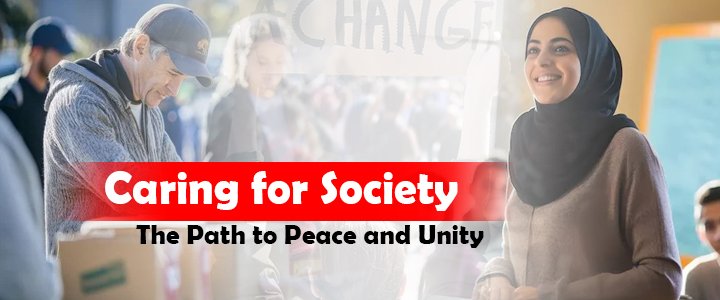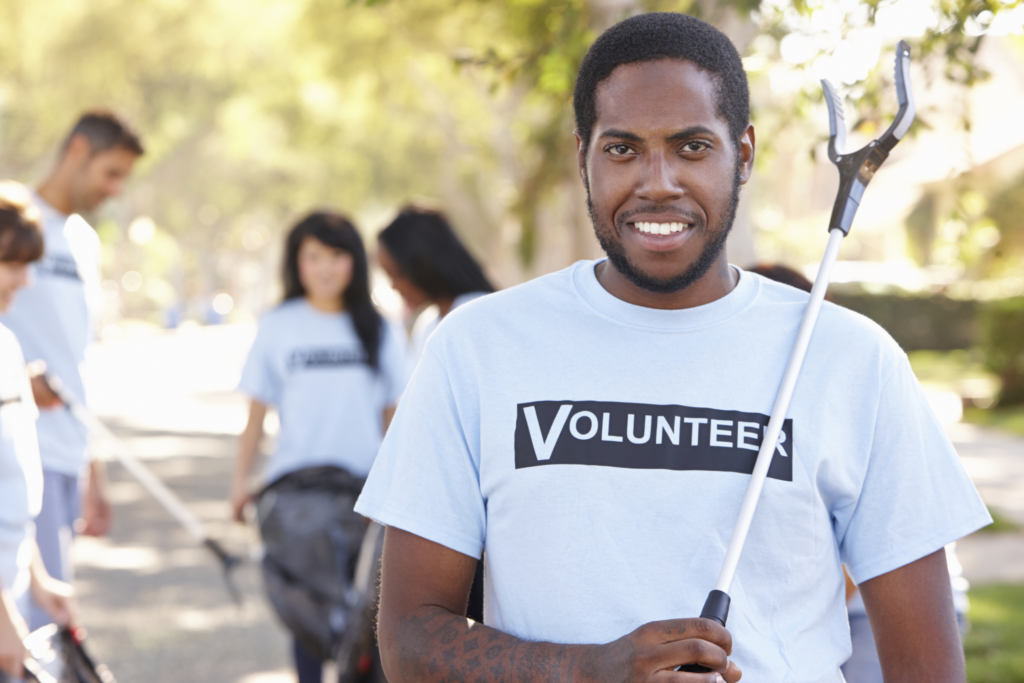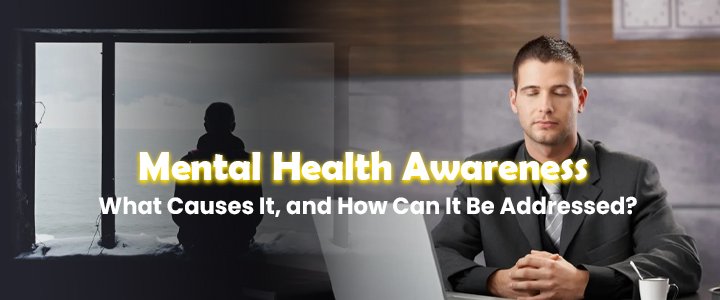
Introduction
In a world that often feels divided, the importance of caring for society cannot be overstated. By fostering compassion and unity, we can build a peaceful and harmonious community. This article explores how caring for society can lead to peace and unity, offering actionable steps to make a difference.
Why Caring for Society Matters ?
Caring for society is not just about charity; it’s about building stronger, healthier communities that benefit everyone. When individuals contribute to the well-being of others, they create a ripple effect of positivity. This article will explain why caring for society matters and how it impacts individuals and the community as a whole.
1: Fostering Stronger Communities
When people care for society, it fosters a sense of belonging. Helping neighbors, volunteering, or supporting community projects strengthens bonds between individuals. Stronger communities lead to safer neighborhoods, better opportunities, and improved quality of life.

2: Improving Mental and Emotional Health
Acts of kindness and social engagement boost mental well-being. Helping others releases endorphins, often referred to as the “feel-good” hormones. Research shows that people who care for society often feel happier, less stressed, and more fulfilled.

3: Reducing Inequality
Caring for society helps bridge the gap between the privileged and the underprivileged. By donating time, resources, or knowledge, individuals contribute to reducing inequalities in education, healthcare, and economic opportunities.

4: Creating a Sustainable Future
When people care for society, they are more likely to engage in activities that support sustainability. Environmental initiatives like recycling, conserving water, and reducing waste benefit both current and future generations.

5: Inspiring Positive Change
Caring for society inspires others to follow suit. Acts of kindness are contagious, encouraging a cycle of positivity and mutual support. When one person takes the initiative, others are likely to join in, creating a larger impact.

6: Building a Legacy
Caring for society allows individuals to leave a lasting impact. The actions taken today can influence future generations, shaping a world where kindness and compassion are core values.

Conclusion
Caring for society matters because it brings people together, improves individual well-being, and paves the way for a better future. It’s a shared responsibility that benefits everyone, creating a world where kindness, equality, and sustainability thrive. Whether it’s through small acts of kindness or large-scale initiatives, every effort counts. Start today and experience the positive changes that come from caring for society.

Benefits of Caring for Society
Caring for society goes beyond helping others; it creates a positive impact on individuals and communities alike. By contributing to the well-being of society, people experience personal growth, improved relationships, and a better environment. This article explores the many benefits of caring for society and why it’s an essential part of a fulfilling life.
1: Enhanced Personal Happiness
Helping others is a proven way to boost personal happiness. Acts of kindness trigger the release of endorphins, the “feel-good” hormones, making people feel more content and fulfilled.

2: Stronger Social Connections
Caring for society helps build relationships. Volunteering or participating in community initiatives allows individuals to meet like-minded people, fostering a sense of belonging and camaraderie.

3: Better Mental and Emotional Health
Engaging in acts of care can reduce stress, anxiety, and feelings of loneliness. Supporting others shifts the focus from personal worries to meaningful contributions, improving mental health.

4: Increased Empathy and Compassion
Caring for society enhances understanding of others’ struggles, building empathy and compassion. This emotional growth fosters a more harmonious and inclusive community.

5: Creating a Positive Community Impact
Every small act of care contributes to a larger positive change in society. Whether it’s helping the environment, supporting education, or aiding those in need, these efforts make communities healthier and more prosperous.

6: Skill Development and Personal Growth
Volunteering and caring for society help individuals develop valuable skills like teamwork, communication, and problem-solving. These experiences contribute to personal and professional growth.

7: Building a Legacy of Goodness
Caring for society sets an example for future generations. Acts of kindness create a legacy that inspires others to continue building a compassionate and caring world.

Conclusion
The benefits of caring for society are profound, touching every aspect of life. From improved personal well-being to creating a better world for everyone, every act of care counts. Whether you volunteer, donate, or simply lend a helping hand, your efforts make a difference. Start caring for society today, and experience the joy and fulfillment it brings.

How to Foster Peace and Unity in Society?
Fostering peace and unity in society is essential for building harmonious communities where people thrive together. It involves understanding, cooperation, and collective effort to overcome differences and promote shared values. This article provides practical steps on how to foster peace and unity in society.
1: Promote Open Communication
Encouraging open and respectful dialogue is crucial to resolving conflicts and understanding different perspectives. When people listen to one another without judgment, they build trust and empathy.

2; Encourage Inclusion and Diversity
Unity flourishes when all individuals feel valued and included. By celebrating cultural diversity and ensuring equal opportunities for everyone, society becomes more cohesive and accepting.

3: Practice Kindness and Empathy
Small acts of kindness can make a big difference in fostering peace. Understanding and supporting others in times of need strengthens community bonds and promotes unity.

4: Educate for Tolerance and Understanding
Education plays a key role in reducing prejudice and misconceptions. Teaching children and adults about the importance of peace, respect, and cooperation can shape a more unified society.

5: Engage in Community Building Activities
Community-building projects such as neighborhood cleanups, charity events, or cultural festivals bring people together. These shared experiences create opportunities for bonding and mutual understanding.

6: Support Conflict Resolution Programs
Encourage the use of mediation and dialogue to address disputes peacefully. Conflict resolution initiatives help individuals and groups find common ground and prevent tensions from escalating.

7: Lead by Example
Individuals can inspire peace and unity by demonstrating fairness, compassion, and cooperation in their daily lives. Leadership rooted in these values motivates others to follow suit.

Conclusion
Fostering peace and unity in society requires collective effort and a commitment to shared values like respect, empathy, and cooperation. By promoting open communication, embracing diversity, and engaging in community activities, we can create a more harmonious world. Start taking steps today to foster peace and unity in your community—you’ll inspire positive change that benefits everyone.

Real-Life Examples of Caring for Society
Caring for society is demonstrated through countless real-life examples where individuals and communities make a difference. These actions not only benefit those in need but also inspire others to contribute to the greater good. Here are a few impactful examples of caring for society:
1; Volunteering at Food Banks
In many communities, volunteers dedicate their time to food banks, ensuring that families facing hunger have access to nutritious meals. This act of care addresses immediate needs and fosters hope for a better future.

2: Supporting Education for Underprivileged Children
Organizations like Teach for America and individuals worldwide provide free education or tutoring to underprivileged children. This effort helps bridge the gap in educational opportunities, empowering young minds.

3: Environmental Clean-Up Drives
Groups and individuals often come together for clean-up drives, such as removing litter from beaches, parks, or streets. These initiatives demonstrate care for both society and the environment.

4: Providing Healthcare Services
Healthcare professionals often offer free medical camps in underserved areas, ensuring that essential healthcare is accessible to all. These camps save lives and improve the quality of life for many.

5: Mentoring and Skill Development
Professionals volunteer their time to mentor youth or unemployed individuals, providing them with the skills needed to secure jobs or start businesses. This form of care helps reduce unemployment and fosters economic growth.

Conclusion
Real-life examples of caring for society highlight how collective efforts and individual actions can make a lasting difference. Whether it’s volunteering, educating, or protecting the environment, these acts of kindness inspire others to contribute. Start small today and see how your care can create a ripple effect of positivity in society.

The Role of Individuals in Creating Peace
Individuals play a crucial role in creating peace within their communities and beyond. While larger organizations and governments often get the spotlight, the actions of everyday people can significantly influence the atmosphere of harmony and cooperation in society. This article explores how each person can contribute to fostering peace.
1: Promoting Understanding and Tolerance
One of the first steps individuals can take is to promote understanding and tolerance toward others. By accepting diverse backgrounds, cultures, and viewpoints, people can reduce prejudices and foster unity.

2: Resolving Conflicts Peacefully
Individuals can practice peaceful conflict resolution by listening actively, avoiding aggression, and seeking mutual understanding. These actions not only resolve disputes but also set an example for others to follow.

3: Spreading Positivity Through Actions
Small acts of kindness, like helping a neighbor, supporting a friend, or volunteering for community initiatives, can have a ripple effect. By showing compassion, individuals create an environment where peace can thrive.

4: Being Mindful of Words and Actions
Words and actions can either build or destroy peace. Individuals can help create peace by being mindful of how they speak and act—choosing words that uplift and engage in actions that promote kindness.

5: Encouraging Dialogue and Cooperation
Encouraging open dialogue between groups with differing opinions can help bridge divides. Individuals who facilitate communication between opposing sides contribute to finding common ground and fostering peace.

Conclusion
The role of individuals in creating peace is vital. By practicing tolerance, resolving conflicts peacefully, spreading positivity, being mindful of their actions, and encouraging dialogue, people can create a peaceful atmosphere that positively impacts society. Every individual’s effort counts in shaping a peaceful world.

Conclusion: The Path to a Better World
Creating a better world requires collective effort, individual action, and a commitment to positive change. Every small contribution toward improving society, fostering peace, and promoting unity plays a part in making the world a better place for everyone. This article summarizes how we can all take steps to build a brighter future.
1: Empathy and Understanding
The path to a better world begins with understanding and empathy. By accepting and embracing the differences in people, we build stronger connections and create a more inclusive society.

2: Acting with Kindness and Compassion
Acts of kindness, no matter how small, can spark positive change. Helping others, supporting those in need, and showing compassion can uplift communities and foster goodwill.

3: Commitment to Peace and Unity
Peace and unity are essential for a harmonious world. By resolving conflicts peacefully, engaging in respectful dialogue, and encouraging cooperation, we contribute to building a more peaceful society.

4: Sustainable Efforts for the Environment
Caring for the planet is an integral part of creating a better world. Protecting natural resources, reducing waste, and adopting sustainable practices help preserve the Earth for future generations.

5: Education and Empowerment
Educating individuals about their rights, opportunities, and responsibilities empowers them to make informed decisions. Education fosters awareness, understanding, and the skills needed to tackle global challenges.

Conclusion
The path to a better world is paved with empathy, kindness, peace, environmental care, and education. When each individual commits to these values, society as a whole benefits. Together, we can build a future that is brighter, more inclusive, and full of opportunity for all.







